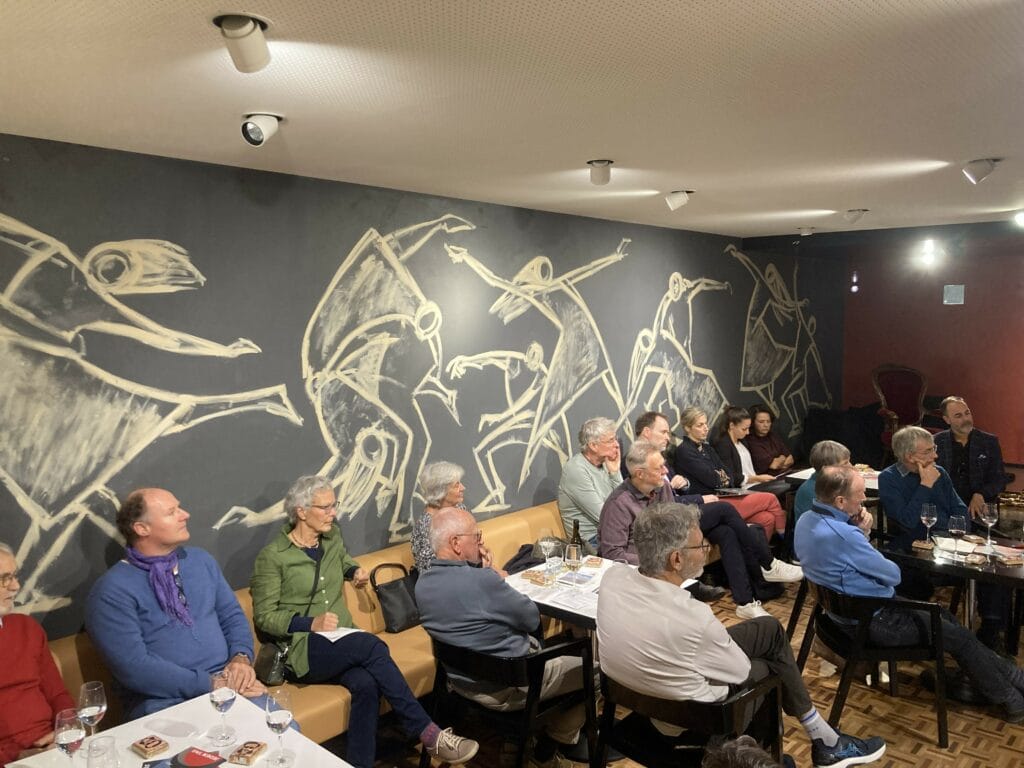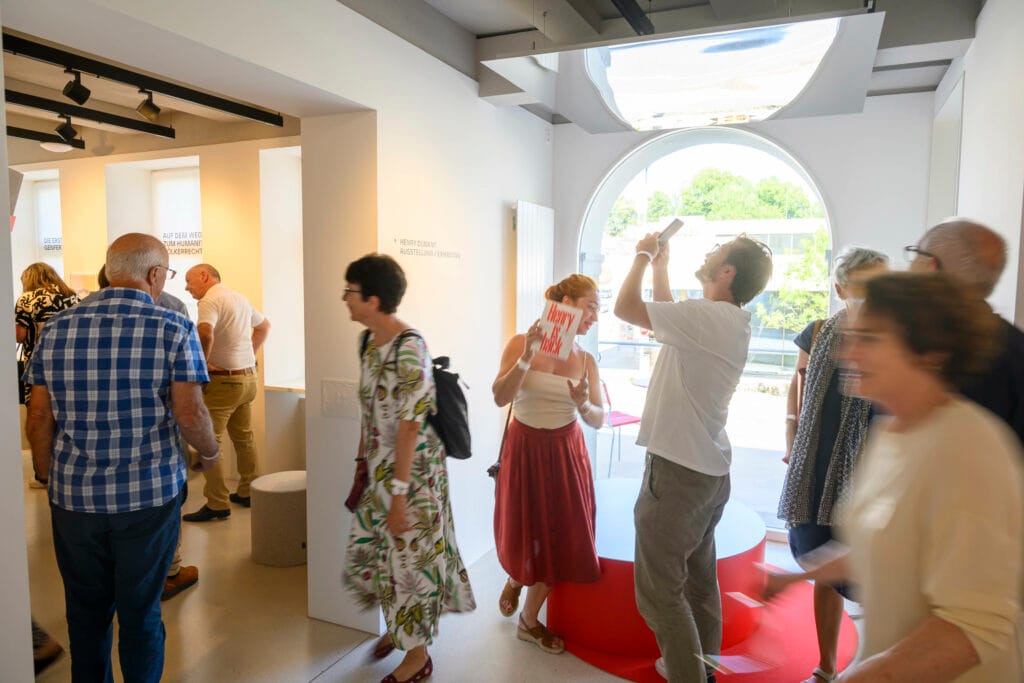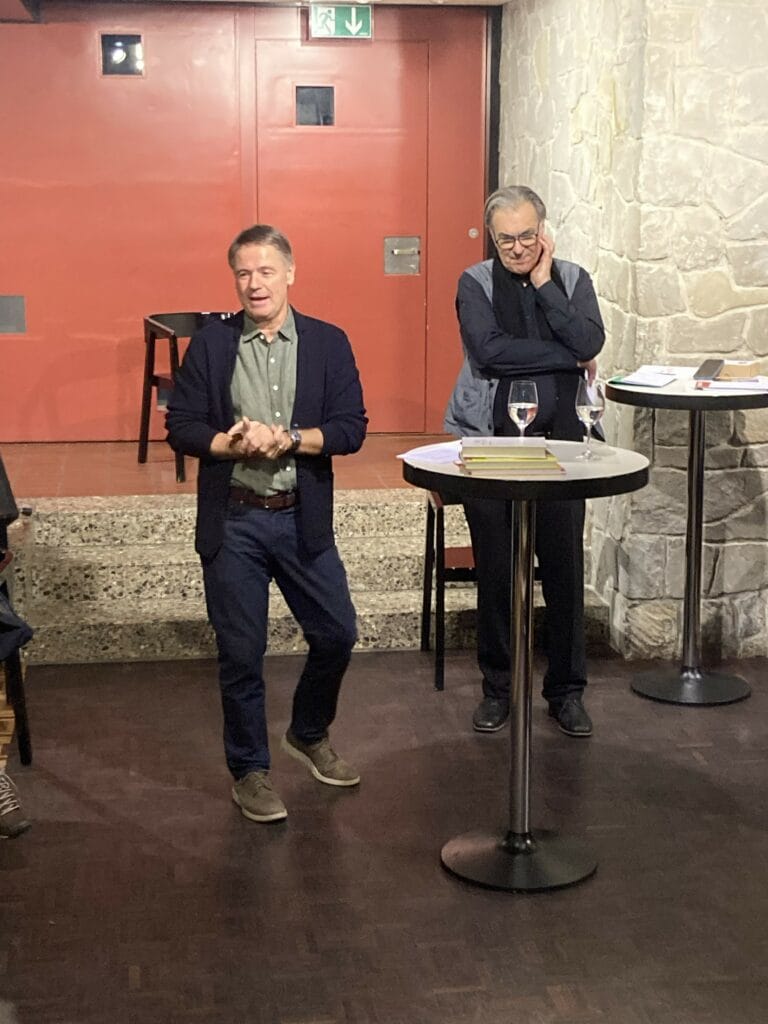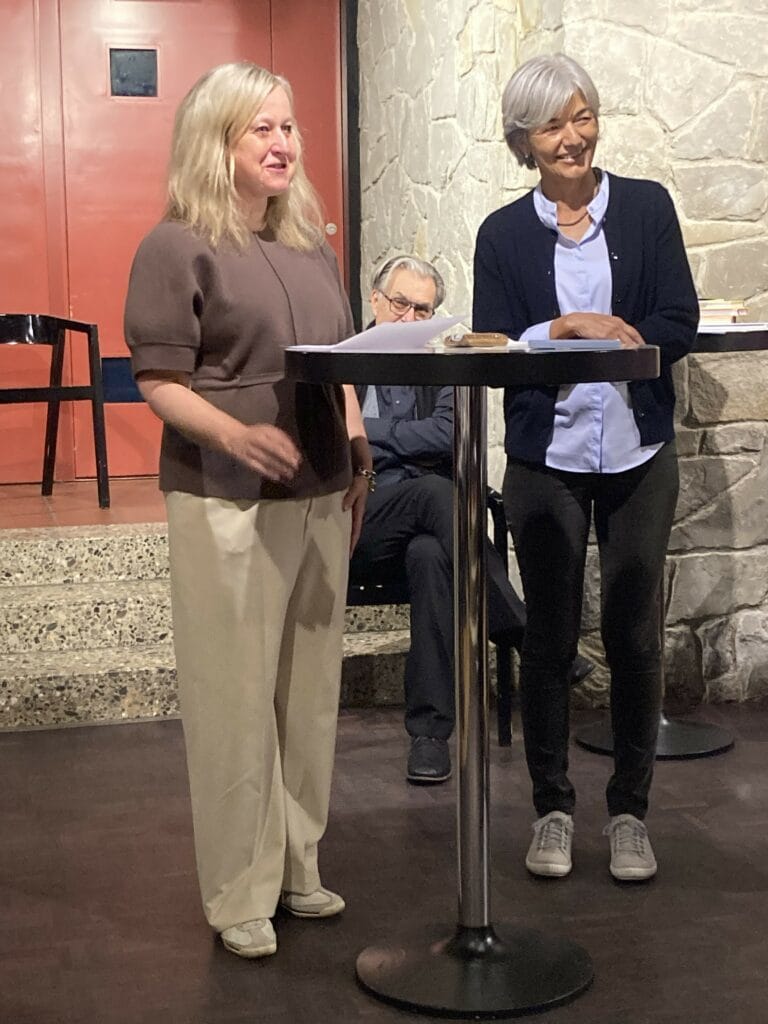
On November 5, 2025, the Kursaal in Heiden became a space where past, present, and future came together. Where the dance frescoes of painter Mario Comensoli usually speak of movement, this evening was about new ways of being together – about courage, humanity, and the trust that collaboration is the foundation for transformation.
The Henry Dunant Museum, which in recent years has been newly positioned and redesigned, invited its board and staff to take part in a “Dialogue of the Present.” At the heart of the evening was a simple but profound question: How can a cultural institution be organized in a way that not only speaks about humanitarian values but truly lives them?
From Repositioning to Reorganization

Since spring 2025, we at PerSens have been accompanying the Henry Dunant Museum on its journey toward a new organizational model.
What began with the modernization of the exhibition soon led to a deeper question: How can an organization be shaped that embodies humanity from within?
Together with the museum’s board and employees, we developed structures through a participatory process that distribute responsibility, share knowledge, and connect voluntary commitment with professional roles. The result is an organization that uses existing competencies, fosters development and opportunity, and radiates a genuine sense of enthusiasm and joy.
This new cooperative museum organization is built on trust, transparency, and shared creation – and it was presented to a wider public for the first time during the “Dialogue of the Present.”
The future is here – it is us.
An Evening of Many Voices

The event was moderated by Urs Bolter, who guided the audience through the evening: from the opening conversation with museum president Dr. Andreas Ennulat, to the inspiring talk by Dr. Bernhard von Mutius, to the dialogues with staff members and board representatives.
Bernhard von Mutius spoke about the power of social cooperation and about how “confrontation can be an invitation to dialogue.” In his talk, he emphasized independence, engagement beyond borders, and the rejection of fanaticism – all while reminding us that engagement sometimes comes with its own “cross to bear.”
His contribution was more than a lecture – it was an invitation to rethink.
In the following dialogue, Tanja Scherrer (museum staff) and Karin Weber (board member) gave heartfelt insights into the museum team’s dedication to bringing Henry Dunant’s legacy into the present – as a lived attitude, not just a historical memory.
Then, Nicole Nobs (board member) and Ruth Bolter (PerSens) made the organizational transformation tangible: how decisions are now made within working teams, how hierarchies are giving way to trust, and how participation turns into shared responsibility.
Humanity as an Organizational Principle

“Decisions are made where the music plays,” said Ruth Bolter during the conversation – referring to the teams who are close to the action and have the competence to act.
Transparency, contextual awareness, and collective learning are the core principles of this new museum organization.
New structures, such as the Museum Council, open up focused ways to participate beyond the board level. This creates a form of collaboration that translates the spirit of Henry Dunant into a contemporary reality – an organization that reflects Dunant’s values, is well-grounded, competence-driven, and jointly orchestrated.
The Future Is Here – and It Is Human
The evening at the Kursaal Heiden was more than an event – it was the living expression of a community in motion.
Today, the Henry Dunant Museum stands as an example for Collaboraising Organisatins® that we at PerSens are proud to help shape: thinking about responsibility in a decentralized way, reinventing collaboration, and building structures that enable growth and development.
As Henry Dunant once said:
“Ideas have a strange tendency to become reality.”
On November 5, one of those ideas became reality – through people who had the courage to embrace change together.

